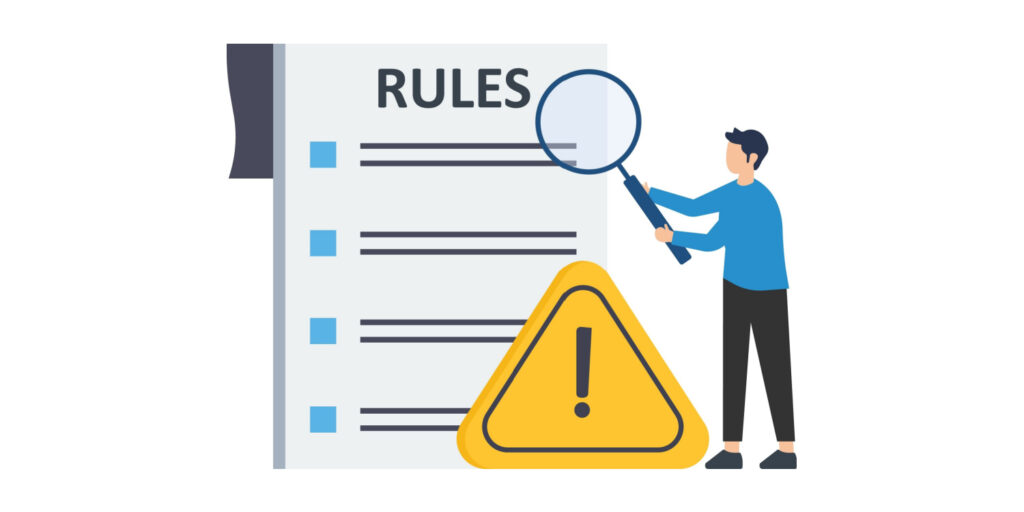Linkable Assets are hands down the best Link Building strategy!
SEO (Search Engine Optimization) Webmaster Guidelines are a set of recommendations provided by search engines, like Google, to help website owners improve their site’s visibility and rank higher in search results. Here’s a simplified explanation:
- Avoid Deceptive Practices: Don’t engage in dishonest tactics like buying backlinks from websites that sell links or use PBN’s to manipulate search rankings. Search Engines are very good at detecting these links and will punish a website that engages in these behaviors.
- Create High-Quality Content: Focus on creating valuable and relevant content that matches what users are searching for. Make sure it’s well-written and easy to understand.
- Use Relevant Keywords: Use words and phrases that people might type into search engines when looking for content like yours. But don’t overstuff keywords; use them naturally.
- Optimize Page Titles and Descriptions: Give each page a unique and descriptive title and a brief summary (meta description) that accurately describes what the page is about.
- Make Your Website Easy to Navigate: Organize your site logically with clear menus and links to help users find what they need quickly.
- Mobile-Friendly Design: Ensure your website works well on mobile devices, as many people use their phones to search the web.
- Fast Loading Speed: Make sure your site loads quickly, as slow-loading sites can frustrate users and affect search rankings.
- Secure Website (HTTPS): Use a secure connection (HTTPS) to protect user data and improve trust in your site.
- Fix Broken Links and Errors: Regularly check for broken links and fix any errors on your site to provide a smooth user experience.
- Use Alt Tags for Images: Add descriptive alt tags to images, helping search engines understand what they depict and improving accessibility.
- Build Natural Backlinks: Aim to get links from other reputable websites, but avoid buying or exchanging links in an artificial way.
- Monitor Performance: Use tools like Google Search Console to track how your site performs in search results and identify areas for improvement.
Following these guidelines can help your website rank better in search engines, attract more visitors, and provide a positive user experience. Remember that SEO is an ongoing process, and it takes time and effort to see significant improvements.
Why Linkable Assets
Creating linkable assets is not against the SEO Webmaster Guidelines. In fact, it aligns well with the principles of providing high-quality content and acquiring natural backlinks, which are both encouraged by search engines.

Linkable assets refer to valuable and unique pieces of content, resources, or tools on your website that other websites in your niche or industry would want to link to naturally. These assets can include things like comprehensive guides, informative articles, infographics, interactive tools, research reports, and more.
When you create linkable assets, you’re essentially providing something valuable to your audience, and this can naturally attract links from other websites that find your content beneficial and relevant. Acquiring such backlinks organically is considered a legitimate SEO strategy and is not against any search engine guidelines.
It’s essential to ensure that your linkable assets are indeed high-quality, relevant, and useful to your target audience. Artificially creating linkable assets that lack value or attempting to manipulate others into linking to them through deceptive practices would be against the guidelines and could result in penalties from search engines.
To summarize, creating linkable assets that provide value and attract natural backlinks is a positive and encouraged approach in SEO, as long as it’s done genuinely and adheres to the SEO Webmaster Guidelines.
Deceptive Link Building Strategies
Deceptive practices, on the other hand, refer to tactics that are manipulative, dishonest, or violate the guidelines set forth by search engines. These practices are aimed at artificially inflating a website’s search rankings, rather than genuinely providing value to users. Some examples of deceptive practices include:
- Keyword Stuffing: Overloading a webpage with an excessive number of keywords in an attempt to manipulate search rankings, even if the content becomes difficult to read.
- Hidden Text and Links: Placing text or links on a page that are not visible to users but can be seen by search engines, again with the intention of manipulating rankings.
- Cloaking: Showing different content to search engines than what is shown to users, trying to trick search engines into ranking the page higher based on the hidden content.
- Link Schemes: Engaging in artificial link-building practices, such as buying or exchanging links, using link farms (PBN’s), or creating low-quality, spammy backlinks.
- Duplicate Content: Replicating content from other sources without proper attribution or permission, attempting to present it as original.
- Doorway Pages: Creating multiple pages targeting specific keywords or locations, which are only meant for search engines and not for users.
- Content Automation: Using automated software to generate low-quality content that lacks value and relevance.

Deceptive practices are strongly discouraged by search engines, and if detected, they can result in penalties, such as a drop in search rankings or even removal from search engine results altogether.
In summary, the key difference is the intent and execution of the practices. Legitimate strategies like creating linkable assets aim to benefit users and provide valuable content, while deceptive practices seek to manipulate search rankings dishonestly and can lead to severe consequences for the website involved.
